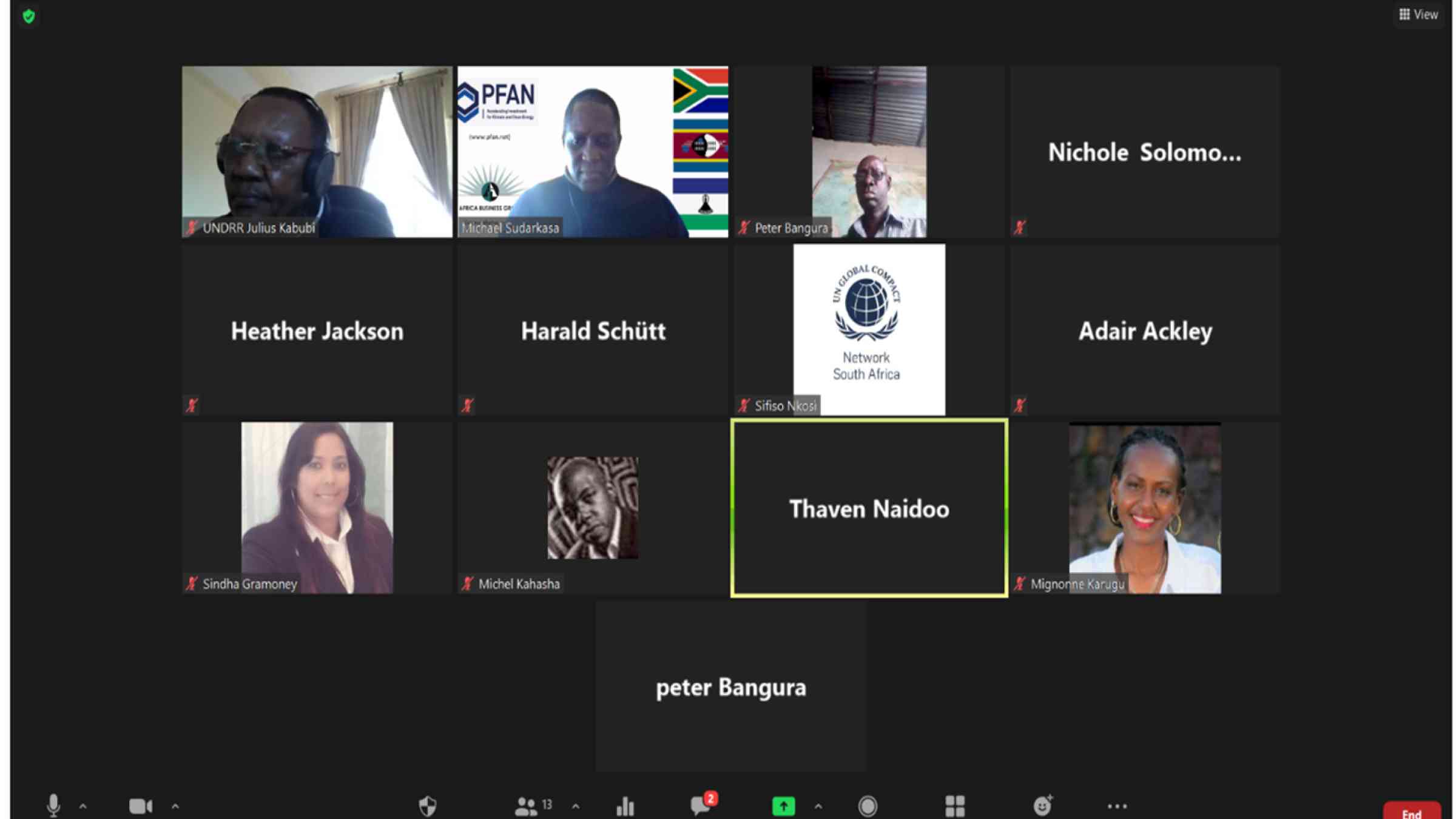ARISE Africa calls for climate resilient infrastructure investment

On 30 June 2021, ARISE Africa met to address how best to strengthen efforts to promote climate resilient infrastructure investments on the continent. This followed the calls to action raised during the 2021Virtual ARISE African Action Festival[1] in a session organized by the Private Financing Advisory Network (PFAN) Southern Africa entitled “Private Sector Financing Options for Resilient Urban Infrastructure” held in May 2021. Representatives from UNDRR, ARISE, PFAN, Global Compact South Africa and RBN Fund Managers unanimously agreed on the importance for African countries to build more climate resilient infrastructure, underlining the significant role of the private sector in this field.
Investment on climate resilient infrastructure is crucial to achieving sustainable development and advancing social and economic equality. Studies have shown that one dollar invested in resilience could save four dollars in post-disaster scenarios.[2] However, faced with the current shortage of public investment in infrastructures, which also has been aggravated by the COVID-19 pandemic, countries worldwide are confronted with more difficulties in funding climate resilient infrastructures.
In this context, the private sector plays a pivotal role in supporting climate resilient infrastructure projects through public-private partnerships. ARISE, initiated by UNDRR, has been dedicated to engaging the private sector in addressing disaster risk management. This event is among a series of activities promoted by UNDRR in collaboration with private sector entities, with the aim of raising awareness among interested stakeholders and facilitating the implementation of climate resilient infrastructure projects in Africa.
Julius Kabubi, UNDRR Programme Analyst stated, “Africa is highly vulnerable to natural hazards, and disasters continue to undermine efforts to achieve the 2030 Agenda for Sustainable Development and Agenda 2063: “The Africa We Want”. When disasters strike, the private sector bears substantial loss due to infrastructural damage. In line with the Sendai Framework target (d) “Substantially reduce disaster damage to critical infrastructure and disruption of basic services, among them health and educational facilities, including through developing their resilience by 2030,” the ARISE Network has identified the critical need to ensure resilient infrastructures as part of its priorities for 2020/2021.”
“As Africa’s population is projected to double by 2050 to 2.4 billion people, African cities will need to develop infrastructure at an unprecedented pace, despite the huge shortage in financing. Thus, the need for private investment is critical. Given the changing climate and rapidly expanding population, this investment must be in “resilient” infrastructure. Toward this end, ARISE Africa in collaboration with stakeholders from PFAN, Global Compact-South Africa, and ANDE- South Africa are working to develop an “Africa Working Group on Resilient Infrastructure Investment” (AWGRII)”, said Michael Sudarkasa, ARISE Global Board member, Coordinator of the Southern Africa ARISE Network, and Coordinator of PFAN South Africa.
Background information
ARISE was started by UNDRR in 2015 to support the private sector to become a key partner in reducing disaster risk. It has grown to over 350 members and over 20 networks across the world. There is incredible energy and appetite to expand ARISE and to equip it to effect change in how the private sector invests in a risk-informed sustainable future. The development of ARISE Networks in Africa began in the spring of 2020 in South and East Africa.
[2] See: Stéphane Hallegatte, Jun Rentschler and Julie Rozenberg (2019) Lifelines: The Resilient Infrastructure Opportunity. World Bank Group. Available at: https://openknowledge.worldbank.org/handle/10986/31805.